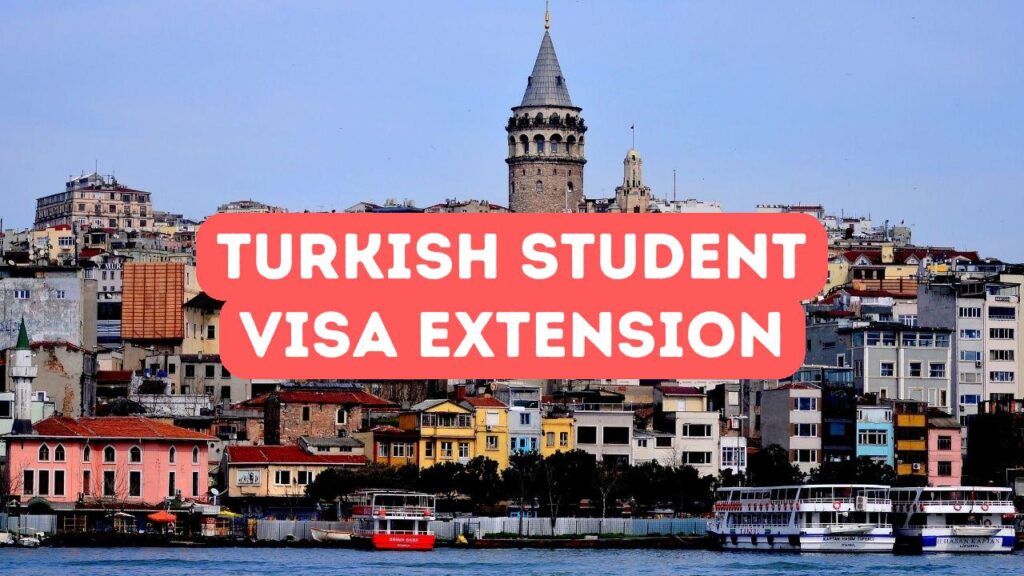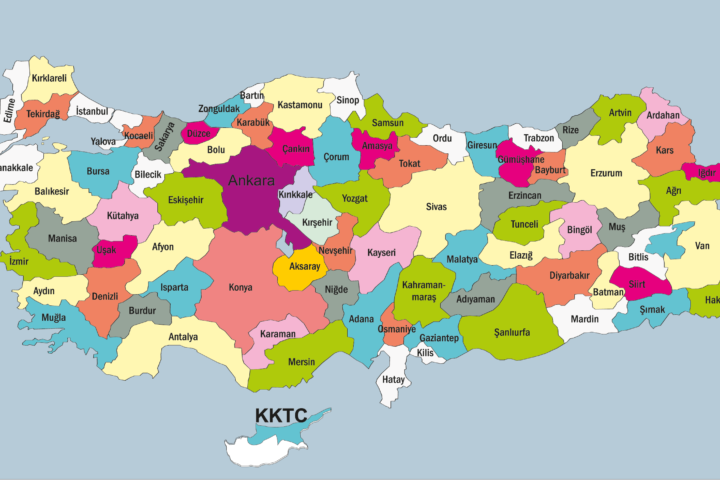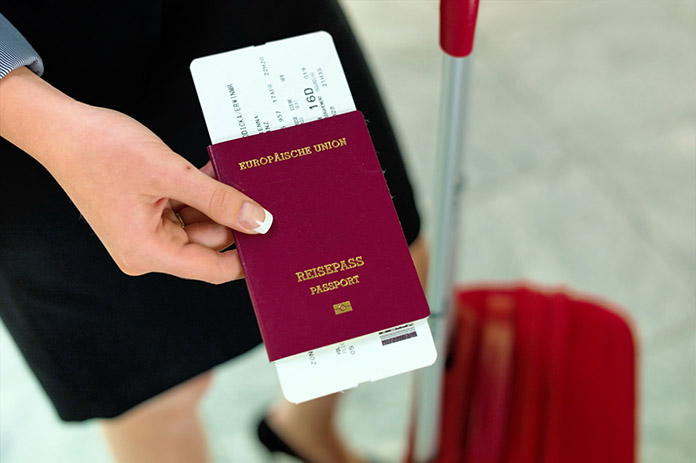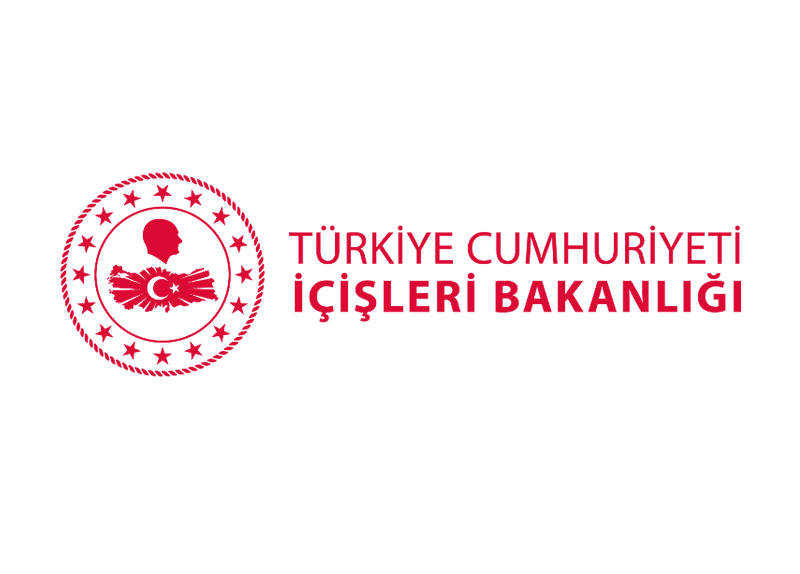Navigating the process of extending a Turkish student visa can be a daunting task for international students aiming to prolong their academic journey in Turkey. Efficient management of your visa status is crucial to ensuring uninterrupted access to quality education and the enriching cultural experiences Turkey has to offer. At Campus Turquie, we understand the complexities involved in visa extensions and are committed to providing comprehensive guidance to streamline this process. Whether you are nearing the end of your initial visa period or planning an extended stay for more in-depth studies, our expert consultancy services are tailored to meet your unique needs. Read on to discover essential information and valuable tips that will facilitate a smooth and successful student visa extension.
Essential Steps for a Successful Turkish Student Visa Extension
Securing a successful Turkish student visa extension begins with timely preparation and organization. Start by gathering all necessary documents well in advance, including your valid passport, a completed application form, a recent passport-sized photograph, and proof of your continued enrollment in a Turkish educational institution. Additionally, you will need a valid health insurance policy and proof of financial stability, such as bank statements or scholarship documents, to demonstrate your ability to support yourself during your extended stay. Ensuring that all paperwork is complete and accurate will significantly increase the likelihood of a smooth extension process.
Once your documentation is in order, the next vital step is to complete and submit your application to the Provincial Directorate of Migration Management (PDMM) in the city where you are studying. Book an appointment online via the “e-ikamet” platform, where you will also fill out your application. Make sure to apply at least 60 days before your current visa expires to avoid any legal complications or interruptions in your stay. During your appointment, be prepared to present your original documents and answer any questions the officials might have. Proactively checking the status of your application and promptly responding to any additional requests from the PDMM will further ensure a seamless extension process.
In addition to the crucial steps of document preparation and submission, one must also stay informed about any updates or changes in the Turkish immigration policies, as these can affect the requirements and procedures for visa extensions. Keep in close contact with the international office of your educational institution, as they often have the latest information and can provide indispensable support. Furthermore, staying connected with other international students can be beneficial, as sharing experiences and advice can help you anticipate potential challenges and solutions. Finally, once your extension has been granted, always carry a copy of your updated visa status and continue adhering to all Turkish residency regulations to enjoy a hassle-free academic experience in Turkey. At Campus Turquie, our experts are always available to offer personalized assistance and address any concerns you may have throughout this process, ensuring that you can focus on your studies and fully immerse yourself in the rich Turkish culture.
Common Pitfalls and How to Avoid Them
One common pitfall in the process of extending a Turkish student visa is missing important deadlines. Many international students tend to underestimate the time it takes to gather required documents and complete necessary applications, leading to last-minute stress and potential legal issues. It is crucial to start the extension process well ahead of your visa’s expiration date to allow for any unforeseen delays. At Campus Turquie, we advise initiating the application at least three months prior to the expiration date. Keeping track of submission dates, scheduling appointments promptly, and ensuring all paperwork is in order can make a significant difference in securing a smooth extension process.
Another frequently encountered challenge is inadequate documentation. Incomplete or incorrect paperwork can result in processing delays or even rejection of your extension application. Proof of continued education, financial stability, and health insurance are typically required, and each document must adhere to specific standards set by Turkish authorities. Our consultants at Campus Turquie recommend thoroughly reviewing the requirements for each document and double-checking for accurate and up-to-date information before submission. Additionally, seeking professional assistance can help identify any missing components and rectify errors promptly, ensuring your application is comprehensive and error-free.
Lastly, language barriers can pose significant challenges during the visa extension process. Navigating through Turkish bureaucratic procedures and comprehending official documents written in Turkish can be daunting for non-native speakers. Misinterpretations or misunderstandings can lead to filing errors, missing crucial steps, or miscommunicating important information. Campus Turquie addresses this issue by offering bilingual support, ensuring every student fully grasps the requirements and communicates effectively with Turkish authorities. Our team of experts will translate necessary documents, guide you through each step in your preferred language, and facilitate smooth interactions with government offices, thereby minimizing the risk of complications arising from language obstacles.
Understanding the Critical Deadlines and Requirements
Understanding the critical deadlines and requirements for extending your Turkish student visa is imperative to avoid any disruptions in your academic schedule. The process typically begins several months before your current visa expires, so planning ahead is essential. It’s crucial to gather all necessary documents, including proof of enrollment, a valid passport, a completed application form, and financial statements demonstrating your ability to support yourself during your extended stay. Additionally, some universities may require confirmation letters or other specific documentation. Staying informed about the exact timeline and requirements will ensure you meet all deadlines and avoid any potential complications, allowing you to focus on your studies without interruption.
To successfully extend your Turkish student visa, it’s vital to be aware of the specific deadlines imposed by both your academic institution and Turkish immigration authorities. Typically, applications must be submitted at least 60 days before your current visa expires to allow ample time for processing. Missing these deadlines can result in visa lapses, which could disrupt your studies and possibly lead to fines or deportation. Beyond adhering to submission dates, ensure that all documentation is both comprehensive and current, as incomplete or outdated paperwork can delay the process. Regularly checking your university and government websites for updates will help you stay on track and mitigate any last-minute surprises, ensuring a smooth extension process.
Working closely with the relevant authorities and leveraging the expertise of seasoned consultants, such as those at Campus Turquie, can significantly enhance your chances of a seamless visa extension. Scheduling timely appointments with the Directorate General of Migration Management (DGMM) and obtaining up-to-date information directly from official sources is crucial. Additionally, having expert guidance ensures that you effectively navigate any unforeseen challenges or changes in regulations. Campus Turquie provides personalized support throughout each step of the process, from preparing your documentation to liaising with authorities on your behalf, making sure no detail is overlooked. This comprehensive approach minimizes risks, alleviates stress, and allows you to fully enjoy your academic journey in Turkey without the burden of administrative concerns.







